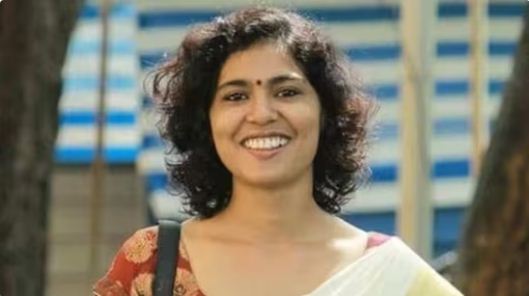Kerala activist Rehana Fathima: The Kerala High Court acquitted Rehana Fathima, saying that a woman’s decision about her body is within her “fundamental right to equality and privacy”.
Kerala activist Rehana Fathima was on Monday relieved in a POCSO case as the High Court acquitted her, stressing that the right to autonomy over one’s body is often denied to the fairer sex, and along with being Bullied, discriminated against, isolated, and persecuted. To make choices about your body and your life.
In 2020, a video of Fatimah went viral, showing her partially nude and her body painted by her minor children. He was later arrested and his bail pleas were repeatedly rejected.
Who is Kerala activist Rehana Fathima?
1. In her appeal to the Kerala High Court, Rehana Fathima insisted that the body painting was meant to make a political statement against society’s preconceived notion that a naked woman’s body is sexual in every way, while a naked man’s upper There is nobody. Treated with this default sensuality.
2. Earlier, on the complaint of BJP POBC Morcha leader AV Arun Prakash, the Pathanamthitta district police had registered a case against the woman under Information Technology Act and Juvenile Justice Act.
3. Fathima was also in the news when she tried to enter the Lord Ayyappa temple at Sabarimala after the Supreme Court allowed women of menstrual age to do so and was criticized by some groups.
4. However, this was not the first time Fatima grabbed headlines. In 2014, he participated in the controversial ‘Kiss of Love’ protest in Kochi against ethical policing along with his colleague Manoj K. Sridhar.
5. Earlier, she tried to challenge bastions of male dominance by participating in the annual Onam Tiger Dance (Pelakali), a popular event in Thrissur that usually involves an all-male troupe.
6. Fatima was born into a conservative Muslim family, which required her to attend madrassa classes and pray five times a day. But after her father’s death, Fatima said her perception of religion changed dramatically.
What does the Kerala High Court say?
1. While acquitting Fathima, Justice Kosar Edappaguth of the Kerala High Court on Monday said that from the allegations against the 33-year-old activist, it was not possible for anyone to infer that her children were subjected to any real or simulated sexual acts. I went. Used and that too. for sexual satisfaction.
2. The court said that she had only allowed her children to use her body as a canvas to paint.
3. The judge said it was “harsh” to define such “innocent artistic expression” as the use of a child in actual or simulated sexual acts. “There is nothing to show that children were used for pornography. There is no indication of sexuality in the video. Portraying the naked upper body of a person, whether male or female, is sexual. A definite act cannot be said, the court said.
4. It further states that the naked exposure of the upper part of the male body is never considered obscene or indecent nor does it constitute sexual abuse, but “the female body is not treated as such”.
5. The Court further noted that there are some who consider female nudity as taboo and only for sexual purposes and the motive behind the video shared by Fathima was to “reject the dichotomy prevailing in the society”. “Uncovering the Standard”. “Nudity should not be associated with sex. A view of the top of a woman’s naked body should not be considered a sexual act. Similarly, a depiction of a woman’s naked body should not be regarded as obscene, indecent, or sexually explicit Justice Edapaguth said.

